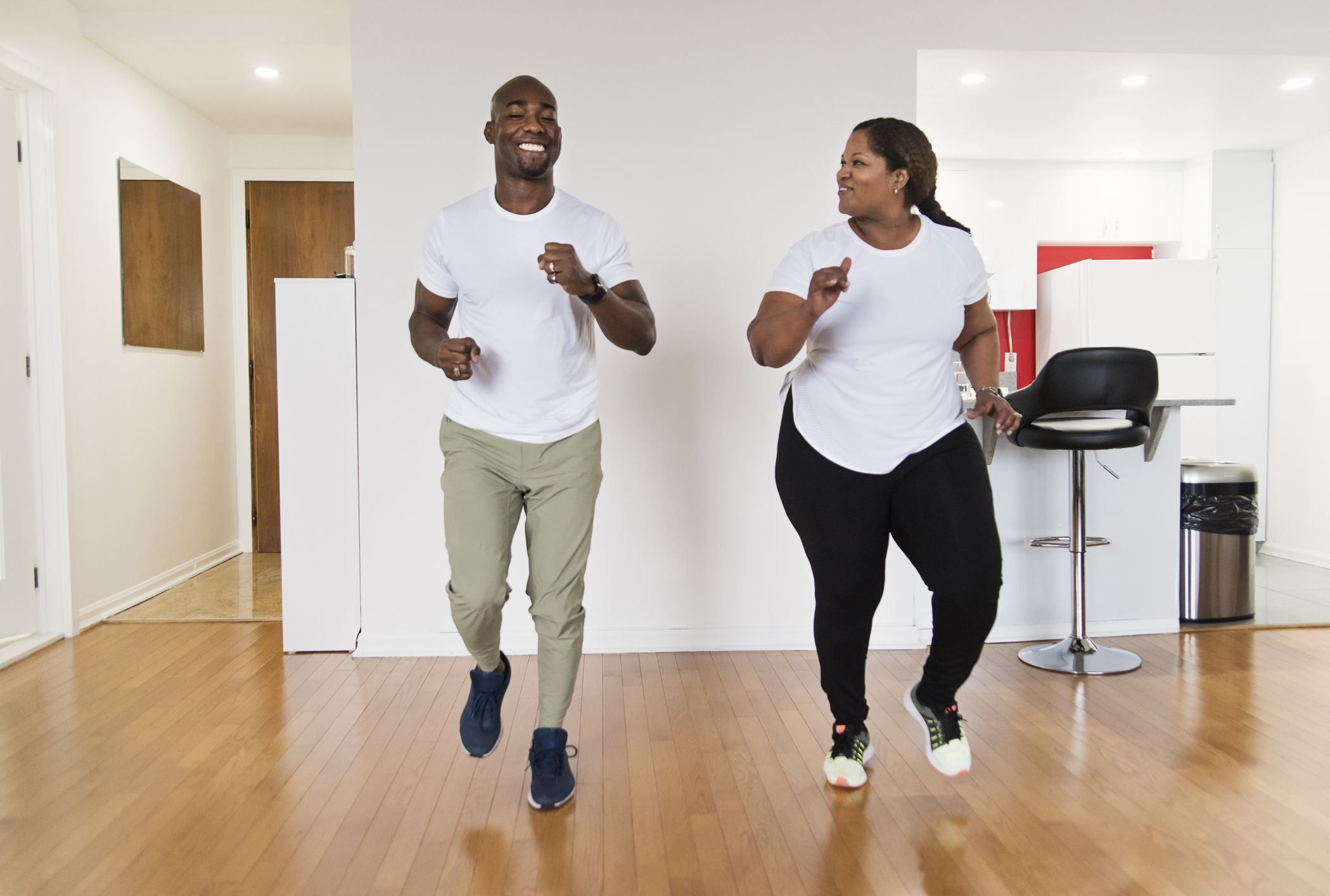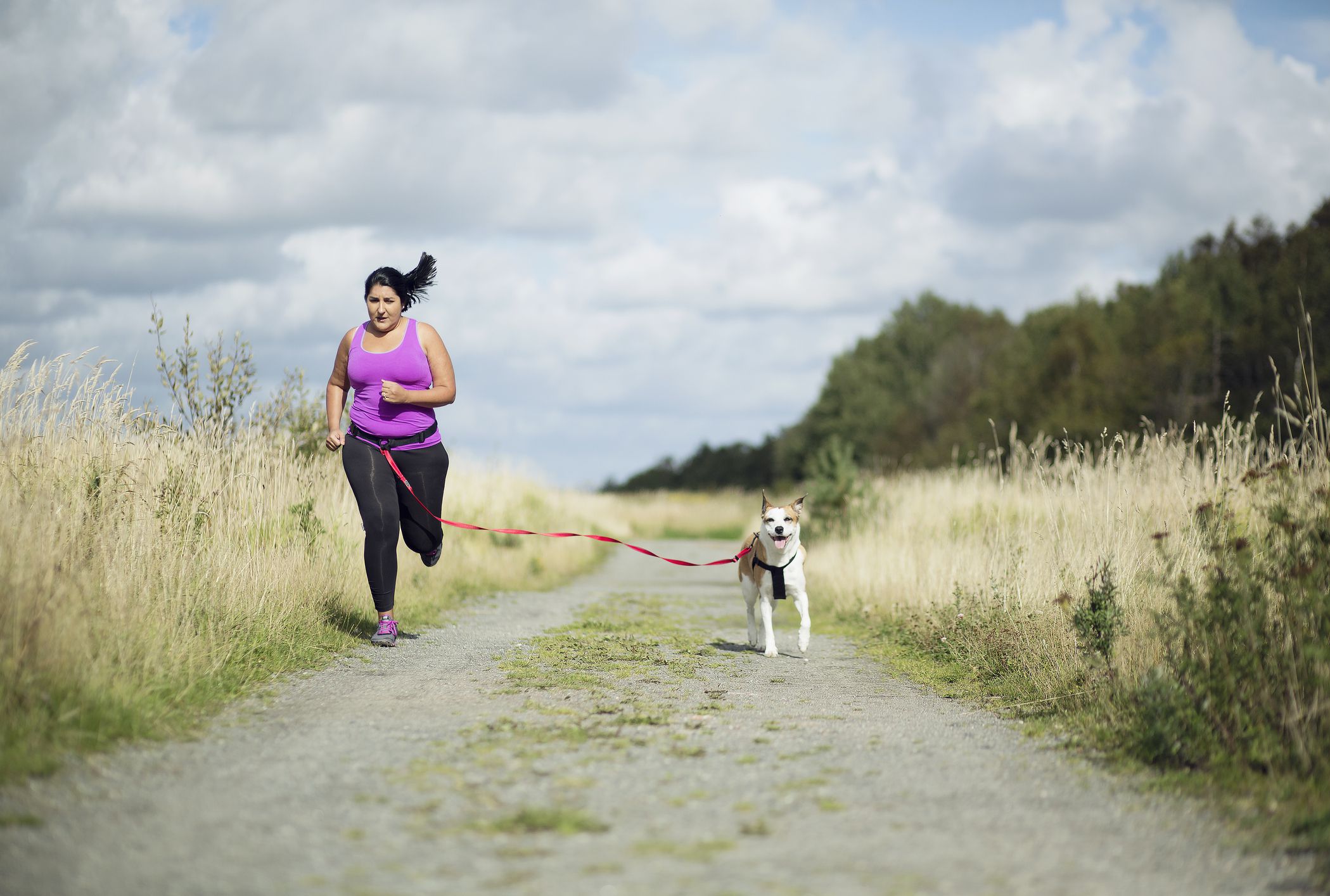
Running is a sport you can do anywhere, even right outside your front door. You need little equipment other than workout apparel and a good pair of running shoes, and the benefits to your physical and mental health are immeasurable.
Despite the sport’s attractions, running can be hard to start. Many people hold back from going out on their first run due to any number of fears.
The good news is you can take valuable steps to mitigate your fears, which might get you running (and feeling all those helpful side effects). Through a mindset transformation, choosing mindful behaviors, and learning how to avoid comparing yourself to other runners, you can begin and stay motivated in a running program.
Why People Are Afraid to Run
Some people are afraid to run because of one main reason: fear of failure. But why? According to a review on fear in sport, exercise, and physical activity, researchers found fear stems from a diminished perception of self, limited to no sense of achievements, and not wanting to endure the emotional cost of failure, which especially holds true if you have experienced a noteworthy failure in life.
The most common fear of failure people have about running is usually based in a lack of self-esteem (which you have the power to change). Other common fears of running include:
Fear of What Others Will Think
In a review on exercise fears, individuals reported that such feelings came from how their parents and most significant instructors treated them. If they were not treated with respect or made fun of, a fear of what others thought of them continued on throughout their lives. These fears started early and were difficult to shake.
Fear of Inadequacy
In a study on attitudes and barriers to exercise in adults with type 1 diabetes, researchers learned that embarrassment and body image played a large role in avoiding exercise. They also state that such barriers to exercise are shared with the non-diabetic population as well.
Fear of Safety
You might feel fearful of running because of fear of physical injury or personal safety.
In a qualitative study on decisions affecting physical activity and exercise in survivors of breast cancer, participants said safety and effectiveness influenced their choices. If they do not feel safe when running, they will stay away.
Additionally, physical safety is a legitimate concern. While hypothetically you can “lace up your shoes and go,” it’s critical to understand safety concerns. Solo running can be particularly intimidating, especially if done early morning, late at night, or in a lesser populated area. Running with a buddy or in a group has the potential to relieve some of these logistical fears.
6 Reasons Having a Running Buddy May Be Key to Spicing up Your Workout
How to Overcome Feelings of Fear or Intimidation
You can slowly turn away from your fears, although this will not happen tomorrow or even the next day. But you can start simple acts now that will help you overcome such fears, such as the following:
Stay Mindful of Your Current Situation
According to Harvard Health, mindfulness trains your attention to stay in the present rather than drifting into the past or future. This helps you not to overreact to fears, and it reduces anxiety and depression that come from fearful thoughts. You can stay mindful by focusing on the surroundings around you, focusing on your breathing, and blocking out all other thoughts.
Meditate Regularly
Meditation does not need to be hard; closing your eyes and sitting in silence is meditating. You can do this when you feel fearful before you start a run: close your eyes and think one calming thought, or count your breaths and begin running. This can change both your mindset and behavior.
Imagine the Reality You Want
Using your imagination is a common treatment for anxiety disorders, says researchers in a
study published in Neuron. They suggest that imagination is effective in reducing threat-related neural patterns and physiological responses from real-world threatening cues, such as the real fears you have on running.
For example, when you want to go for a run and feel afraid, simply imagine yourself out for a nice run. This can change your mindset quickly.
Keys to Avoiding the Comparison Trap
Comparing yourself to others puts you in a mindset trap, and it is challenging to remove yourself out of this state of mind. But these keys can help you avoid measuring yourself against others:
Build Your Community
You need support from others, such as parents, colleagues, friends, and peers, says researchers of a study on the effects of social comparison. Such support is a significant predictor of self-esteem, happiness, and feeling satisfied in life.
Focus on Similarities
Look for similarities between you and people doing well, rather than comparing up to people you think are doing better in life. EurekAlert!, a peer-reviewed publication associated with the American Association for the Advancement of Science, says that this type of thinking will likely lead to positive feelings and overall satisfaction.
Self-Regulate Your Emotions
According to Harvard Health, self-regulation requires suppressing negative emotions and focusing on what you think is positive about yourself. You can also reframe negative situations and view the opportunities in them instead. For example, if you see yourself as a bad runner, you can seek out easy ways to grow in the sport. Go out for a five-minute walk and think about how you helped your mental and physical health. This prevents fear from creeping into your head.
Tips for Staying Motivated
Once you get started running, fears can always resurface. Taking actions to mitigate this will help keep you motivated and staying active in the sport.
Opt for a Short Walk
You do not need to get out and run if you still feel fearful; you can take simple, mindful walks. During these walks, focus on your body awareness, breathing, and what you see around you. In a study, people who did 30 minutes of mindful walks twice a week for a month felt less stressed and noted they had a better quality of life.
Hire a Running Coach
You can hire a running coach who specializes in beginning runners. A coach can assess your current fitness, identify your strengths, and develop a program that can help you achieve your running goals. You can be open with the coach about your fears and talk through them with this experienced professional.
Why You Should Hire a Running Coach
Set Attainable Goals
New behaviors can become automatic between 18 to 254 days if you continue to do them, according to a study. Although this sounds like a long time, you can always start today with a 30-minute walk and move into a walk/run program over time. If you do this consistently, your body could end up craving the physical activity.
Find a Running Buddy
In a study on attitudes and barriers to exercise in adults with type 1 diabetes, researchers found a preference for support on a one-to-one basis rather than in a group environment. If you have a friend who likes to run, asking this friend to go with you could keep you motivated and feel less intimidated than starting in a running group.
A Word From Verywell Fit
Talking walks, self-regulating negative thoughts, and proactively seeking support from the significant people in your life is the way to start growing confident in your running ability. Getting over your running fears takes a long time, but you can take immediate steps today to work on building confidence.
If you are new to running, be sure to reach out to a healthcare provider before starting a new exercise program, especially if you have a chronic health condition or concerns about adding an activity to your routine.
Frequently Asked Questions
-
What is the phobia of exercise?
A phobia of exercise occurs when a cognitive, physiological, or behavioral fear occurs, which can be for any number of reasons. According to a study on fear-related barriers to physical activity, such phobias happen because of fears of injury, feeling embarrassed, or thinking you cannot do it—so why try?
-
How do I know if fear is holding me back from running?
You might not know if fear is holding you back, but if you feel any of these, you could have a fear-based barrier to physical activity:
- Feeling embarrassed in your running ability
- Thinking a cardiac event could happen to you
- Worrying about joint damage
- Thinking an injury will occur
- Worrying a crime will happen to you while out running
-
How far should I run if I am just getting started?
You can start with a 45-minute workout session, which includes a 10-minute warm-up, 30-minute run/walk (to keep you from doing too much running at the beginning), and a 5-minute cool down. In a study on the effectiveness of a 6-week training program for runners, researchers found that a 45-minute session for novice runners was practical and feasible.
Finding the Motivation to Exercise




















